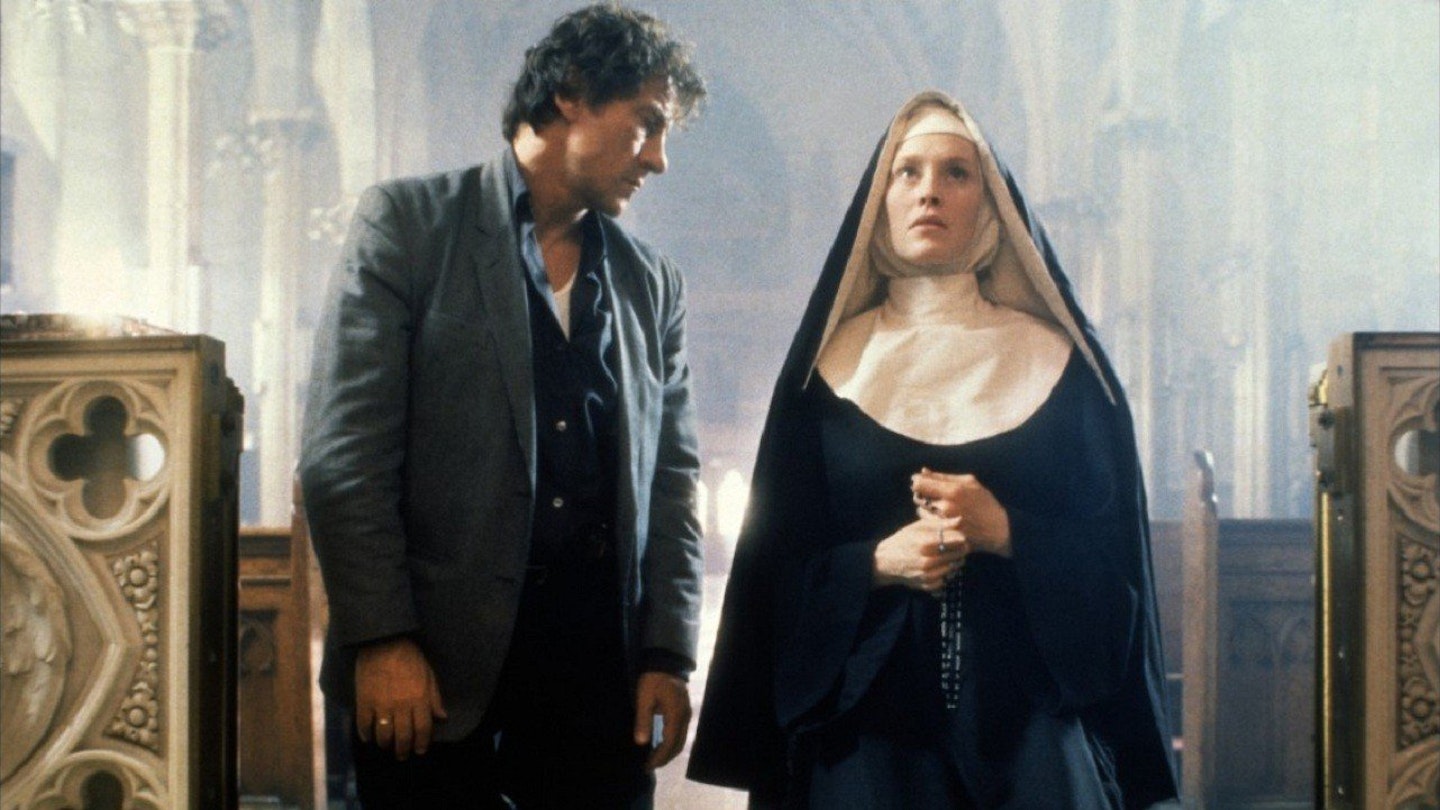Werner Herzog has tended to operate more effectively and consistently as a documentarian than as a director of fiction; even his classics, Aguirre: Wrath Of God and Fitzcarraldo, embedded large slugs of director-generated reality in their nominally fictional tales. That he’d attempt anything as contrived and potentially limiting as the cop thriller seems counterintuitive. Small wonder, then, that in fact he hasn’t attempted anything as contrived and potentially limiting as a cop thriller (and it’s certainly no remake — you may as well compare Monsters, Inc. to Abel Ferrara’s tortured original; you’ll probably find more similarities). Bad Lieutenant is a character piece, a coruscating account of one man’s trip to hell and the hoots of mordant laughter that can be had along the way, surrounded by a few of the trappings of the erstwhile genre. So sure, there’s a gang murder and some kind of investigation; there are drug busts and gunfights, scenes in interrogation rooms and bodies are gaffer-taped and slung into the bayou. But all these tropes are incidentals — most matters of plot are, in the end, stitched up in a single scene that lasts less than a minute. Which is why the success of this whole shebang relies on its central character’s performance. And here Nicolas Cage delivers in spades. And then delivers some more.
Cage has always been a vexing, inconsistent screen presence. When the material and director are right (Leaving Las Vegas, Raising Arizona, Con Air), he is one of the most compelling, unique voices in American cinema, comparable really to no-one else). But when the material is wrong (8mm, National Treasure) something curdles, and what was once bracingly off beam becomes irritatingly contrived.
But in Herzog he has found the perfect collaborator. Though he denies it, Cage may well be the heir to Klaus Kinski as Herzog’s muse. While even Cage doesn’t quite approach Kinski’s air of sainted lunacy, there is the sense that, unlike other actors with whom Herzog has worked, the director has no need to nudge, threaten or cajole his lead into embracing his skewed aesthetic. Cage has been living on planet Herzog all the while: they seem to glance at each other, grin with delight and reach fearlessly for the crazy. In what other cop thriller would you see the corpse of an alligator in the middle of a traffic accident, hind leg still twitching — but see it through the milky eye of a second alligator, unobserved by the human participants?
Is it the first alligator’s significant other? Mother? Best bud? Whatever, it is distinctly unimpressed with this brief glimpse of human affairs and slinks back into the foetid morass. (The fact that one of the traffic cops is played by Fairuza Balk just adds to the air of surreality.) In other news, a gunshot victim’s soul breakdances his way into the hereafter. And there are more iguanas present than is conventional for the genre.
The secret to Cage’s performance is that even if he is not a good man, he is at heart a likable, somewhat mesmerising one, and screenwriter William Finkelstein is smart enough to give McDonagh’s drug habit some kind of excuse — an agonising injury sustained in an uncharacteristic moment of generosity to a drowning criminal.
The move to New Orleans is a masterstroke, the perfect setting for McDonagh’s downfall. The New Orleans Herzog channels seems to be in constant warfare with the swamp, the outcome of this battle undecided. It feels wet, humid — greenery seeping out of the cracks in its tasteful façade. Literal rot as well as figurative decay is everywhere.
And just when you think this insane gumbo can surprise you no further, Bad Lieutenant throws another perfectly judged curve ball: a redemptive moment that seems to come from nowhere, and which really shouldn’t work. But it does, and it leaves you smiling at Herzog’s audacity.

